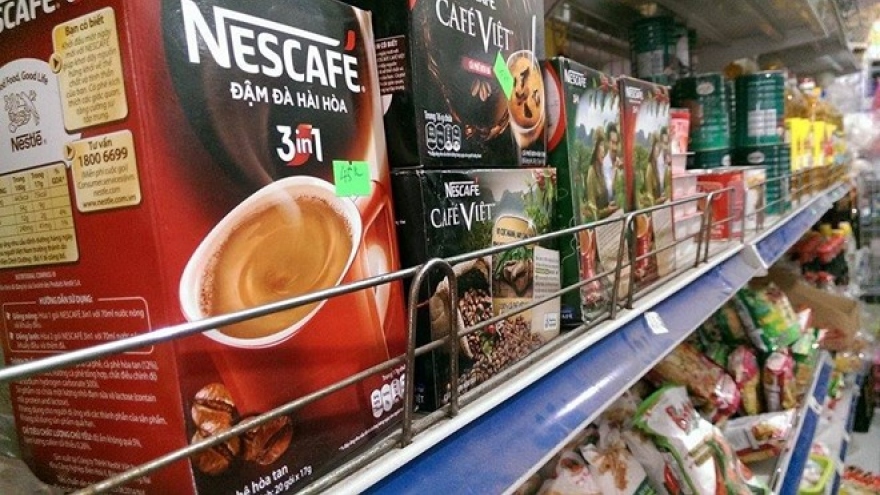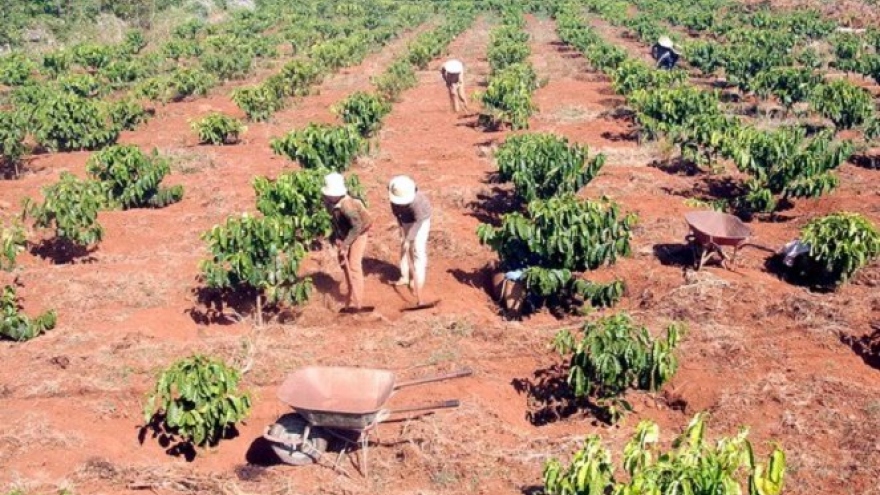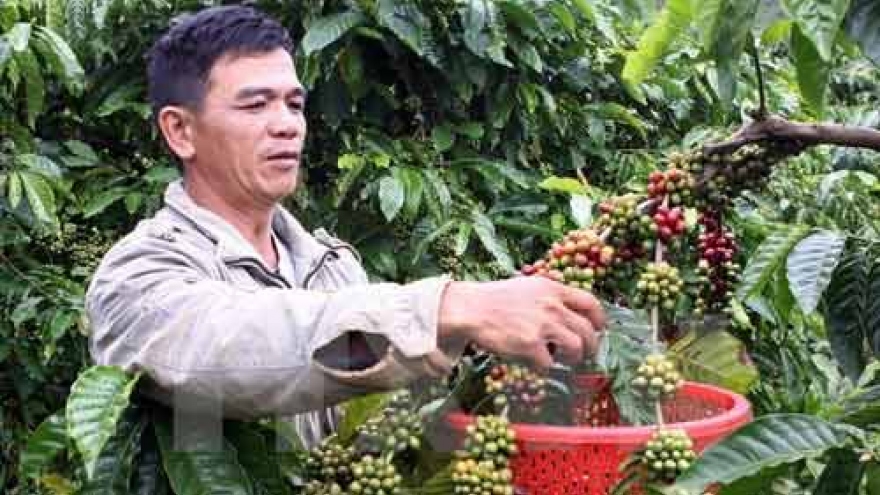Credit policies enable sustainable coffee development
Credits provided by banks have generally met the capital demand of businesses, cooperatives and farm households to produce, sell, process and export coffee, heard a conference in the Central Highlands province of Dak Lak on May 13.
Deputy Minister of Agriculture and Rural Development Le Quoc Doanh called for close coordination among localities to weather difficulties for farm households and quickly disburse capital resources for coffee replantation.
Deputy Director of the Vietnam Coffee Company Dong Van Quy proposed the State Bank of Vietnam (SBV) reduce the loan interest rate for coffee replanting by 6 percent while the Government needs credit policies specifically designed for coffee development.
 |
The Vietnam Bank for Agriculture and Rural Development (Agribank) is proposed to promptly meet demand of locals and businesses to replant the old and diseased coffee trees.
Credit organisations are hoped to facilitate the development of models linking businesses and farm households to apply high technology in the production, processing and consumption chain and enhance intensive processing capacity to realise effectively the agricultural restructuring project.
They are also committed to offering loans to build logistics systems and invest in coffee production equipment according to the State’s preferential policies.
Localities also suggested the Ministry of Agriculture and Rural Development work with relevant ministries and sectors to study and promulgate planning and management policies for sustainable coffee development.
They proposed the ministry soon revise coffee replanting plan in line with the small-scale farming land and reality of each locality while supporting farmers with varieties selection and growing, caring, harvesting and processing techniques, providing information on the market and promoting Vietnamese coffee.
According to the SBV, non-performing loans for coffee nationwide by the end of the first quarter of 2016 reached VND48.1 trillion (US$2.1 billion), a yearly rise of 6.15%, with more than 340,000 farmers getting involved, mainly from four Central Highlands key coffee production provinces, namely Dak Lak, Lam Dong, Gia Lai and Dak Nong.



